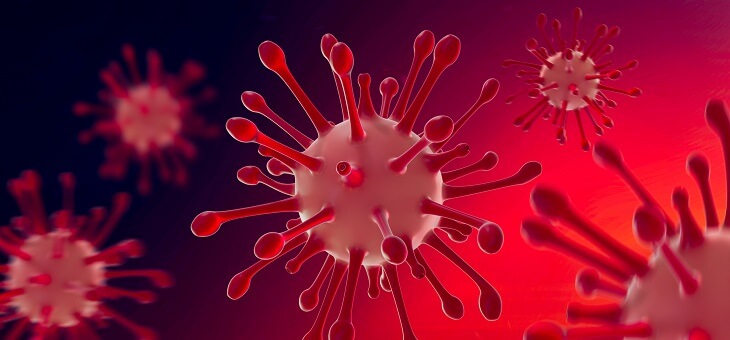Monkeypox is the latest virus to have world health authorities on alert, and has now been detected in Australia. But should you be alarmed?
In a world still battling the COVID-19 pandemic, any potential new viral threats are cause for alarm.
Monkeypox is a rare condition, similar to smallpox, and typically begins with an influenza-like illness and swelling of the lymph nodes. It then progresses into a widespread painful rash with lesions on the face and body.
The virus is endemic to central and west Africa. Transmission to humans usually occurs via infected animals, such as primates or rodents, however human-to-human transmission does occur.
Read: Air cleaners that best remove aerosols that contain viruses
Two cases have been detected in Australia since 20 May – one in New South Wales and one in Victoria. Both were men who had recently travelled to and from Europe.
The Australian cases join confirmed cases in the UK, Spain, France, Portugal, the US and Canada.
Human-to-human transmission happens when there is close contact with infected lesions on the skin, contact with any body fluids from an infected person and contact with contaminated materials such as towels or bedding.
Health authorities say we shouldn’t panic just yet. While human-to-human transmission does occur, and symptoms can be severe, monkeypox requires extended contact with an infected person to be passed on, they say.
Read: Scientists find more than 54,000 viruses in people’s poo
Although not technically a sexually transmitted infection (STI), monkeypox is often passed on during sex due to the extended intimate contact between partners.
It is important to note that significant close contact with an infected person who is displaying symptoms is usually required for transmission,” says Dr Sonya Bennett, acting chief medical officer of Australia.
“This means that, with good community awareness, transmission is likely to be localised, readily identified and able to be contained. Investigations are ongoing as to the precise nature of transmission during this outbreak.”
Read: Clean your car to limit virus spread
Dr Bennett says there are existing treatments for monkeypox, including vaccines, and that people should be aware of the virus’s presence in the community, but not panic.
“While there are currently no specific treatments available for monkeypox infection, outbreaks can be controlled,” she says.
“As monkeypox is similar to smallpox, smallpox vaccine can also protect people from getting monkeypox. It is also thought that antiviral treatments for smallpox may also be effective for treating monkeypox.”
The virus is what’s known as a ‘self-limiting’ disease and symptoms usually last between two and four weeks, although more severe symptoms can occur.
If you enjoy our content, don’t keep it to yourself. Share our free eNews with your friends and encourage them to sign up.

